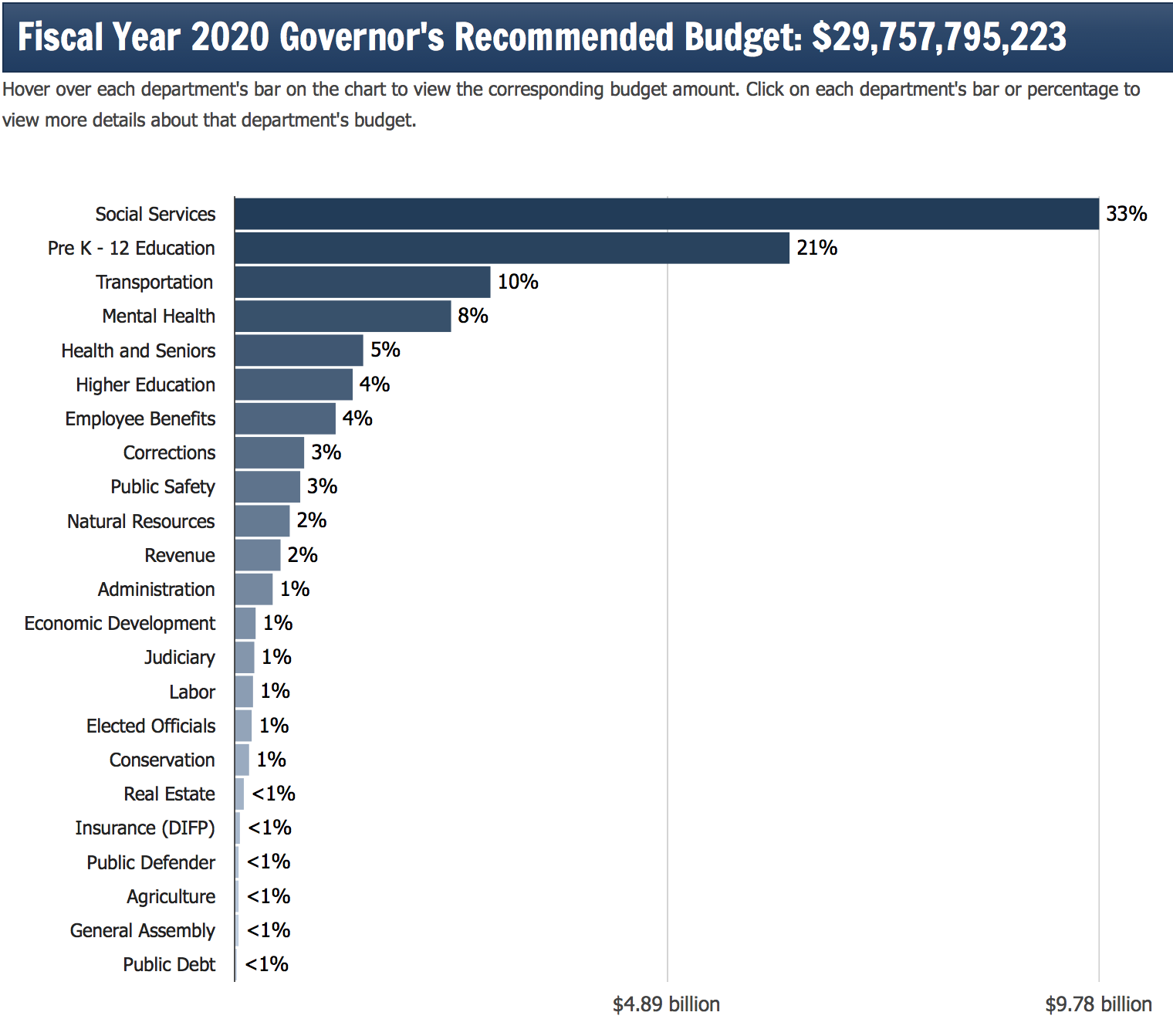JEFFERSON CITY, Mo. — Lawmakers in the two chambers are set to sit down together to begin hashing out differences between the two versions of the budget.
The Conference Committee Budget is scheduled to get underway Tuesday morning. The chosen lawmakers — five representatives and five senators for each bill — will work out the final details of 12 out of the 13 bills that comprise the state’s roughly $30 billion budget for the upcoming operating year, FY 2020. Since the Senate made no changes to HB 1, the bill appropriating money to the Board of Fund Commissioners has been Truly Agreed and Finally Passed.
Here are some notable differences between the Senate and House versions of the budget:
Transportation funding
The House allocated $100 million of general revenue to go to repair Missouri’s transportation infrastructure as an alternative to the $351 million bond proposed by Gov. Mike Parson. House Budget Chair Cody Smith previously said he intended to continue transferring $100 million in general revenue to the state road fund for the next several years — four years in total.
The Senate zeroed out the line item, instead opting to go for a compromise between the governor’s recommendation and the House’s proposal. The compromise version creates $301 million in bonds to be paid back over seven years, about $46 million a year, with $50 million allocated from the general revenue to “jump start” the projects.
Last week the House budget committee began vetting the compromise. The proposal has yet to be voted on by the committee.
Higher education deferred maintenance vs. core funding
The House designated $11 million total to go to deferred maintenance for the state’s public universities. $1 million was allocated as one-time funding for each four-year institution and State Technical College. Missouri State University was allocated $4,685,213 as an “equity adjustment.”
In contrast, the Senate opted to increase the core funding of the universities by $1 million and State Technical College by $500,000 — which would lock the General Assembly into the new level of core funding. The Senate also upped the funding to Missouri State by $10 million.
Fast Track grant program
Part of Parson’s workforce development focus includes a scholarship for adults to get trained in high demand jobs.
The House allocated $18,410,540 — $8,410,540 from general revenue and $10 million from other funds — to the Fast Track grant program. The Senate allocated $10 million of general revenue towards the adult scholarship program.
The legislation creating the grant program has yet to cross the finish line. Rep. Kathy Swan’s version of the measure has passed the House and currently sits on the Senate calendar. Sen. Gary Romine’s version of the proposal stalled on the Senate floor.
Some lawmakers have expressed trepidation at allocating funds for a program that has yet to actually pass the General Assembly.
Location of the Capitol Police
The agency under which the Capitol Police will preside is also up for debate.
The House moved the funding from the Department of Public Safety to the Office of Administration. The Senate declined to make the move, leaving the force consisting of 29 Sworn Peace Officers and three civilian support staff where they are currently housed.
Other differences
The Senate allocated $8 million for flood recovery and mitigation, including a mobile flood wall in Clarksville. The House did not include funding for the particular line item.
Under the Senate version, mileage reimbursement rates would increase from $0.37 to $0.43 per mile.
The House increased public school transportation funding by $5 million; the Senate increased the line item by $10 million.
Both chambers opted to significantly increase lottery funding for pull-tabs from the governor’s recommendation of $3,220,980. The House allocated $5,620,980, and the Senate allocated $10,015,365.
The House decreased funding for virtual desktops to $67,500, while the Senate restored the funding to $200,000.

Alisha Shurr was a reporter for The Missouri Times and The Missouri Times Magazine. She joined The Missouri Times in January 2018 after working as a copy editor for her hometown newspaper in Southern Oregon. Alisha is a graduate of Kansas State University.

















